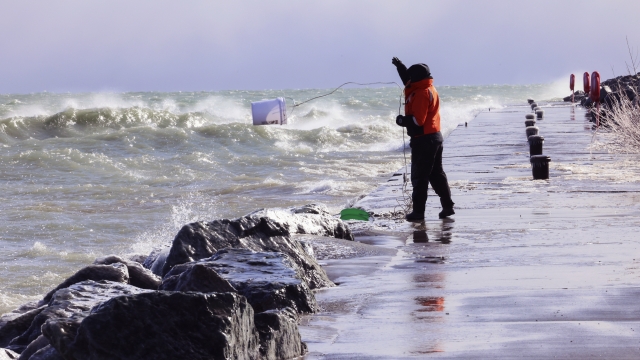Wisconsin scientist Madeline Magee tells the AP that while the mild Midwestern winters of the last few years may be a delight for most folks, climate researchers like her are concerned that the lack of ice cover on the Great Lakes may have consequences.
"The goal of the study is to really understand what is happening in the winter on the Great Lakes," said Magee. "If we lose ice cover, we really are changing the fundamental ecosystem of the Great Lakes in ways that we don't really understand right now."
Over the last 50 years, mid-February would see Great Lakes ice cover at about 40% on average, and as much as 91%. This year on Feb. 11, ice coverage was measured by federal researchers at 2.7%, a historic low.
"The winter period is really important because it helps set the stage for spring and summer conditions on the Great Lakes," Magee said.
Scientists suspect that lack of ice makes the water warm up more quickly, resulting in less oxygen reaching the lower parts of the Lakes. That causes plankton and other organisms to die, reducing a food source for fish. Warmer lakes could also fuel algae blooms that spoil beaches and clog shipping channels. Less ice could also mean shrinking beaches.
"The most I would say immediate and kind of observable effect of lack of ice cover is actually going to be shoreline erosion," she said.
In a project led by Michigan Tech, scientists have been collecting winter-specific data to compare to summer conditions.
"We want to understand winter conditions right now and moving forward, understand winter conditions as we start to see greater climate changes, more frequent cases of no ice conditions compared to ice conditions," Magee said.
It's an effort to try to unlock the mysteries of winter under climate change today, to prepare for the winters and summers of tomorrow on the Great Lakes.
SEE MORE: February set another record for global warmth
Trending stories at Scrippsnews.com



